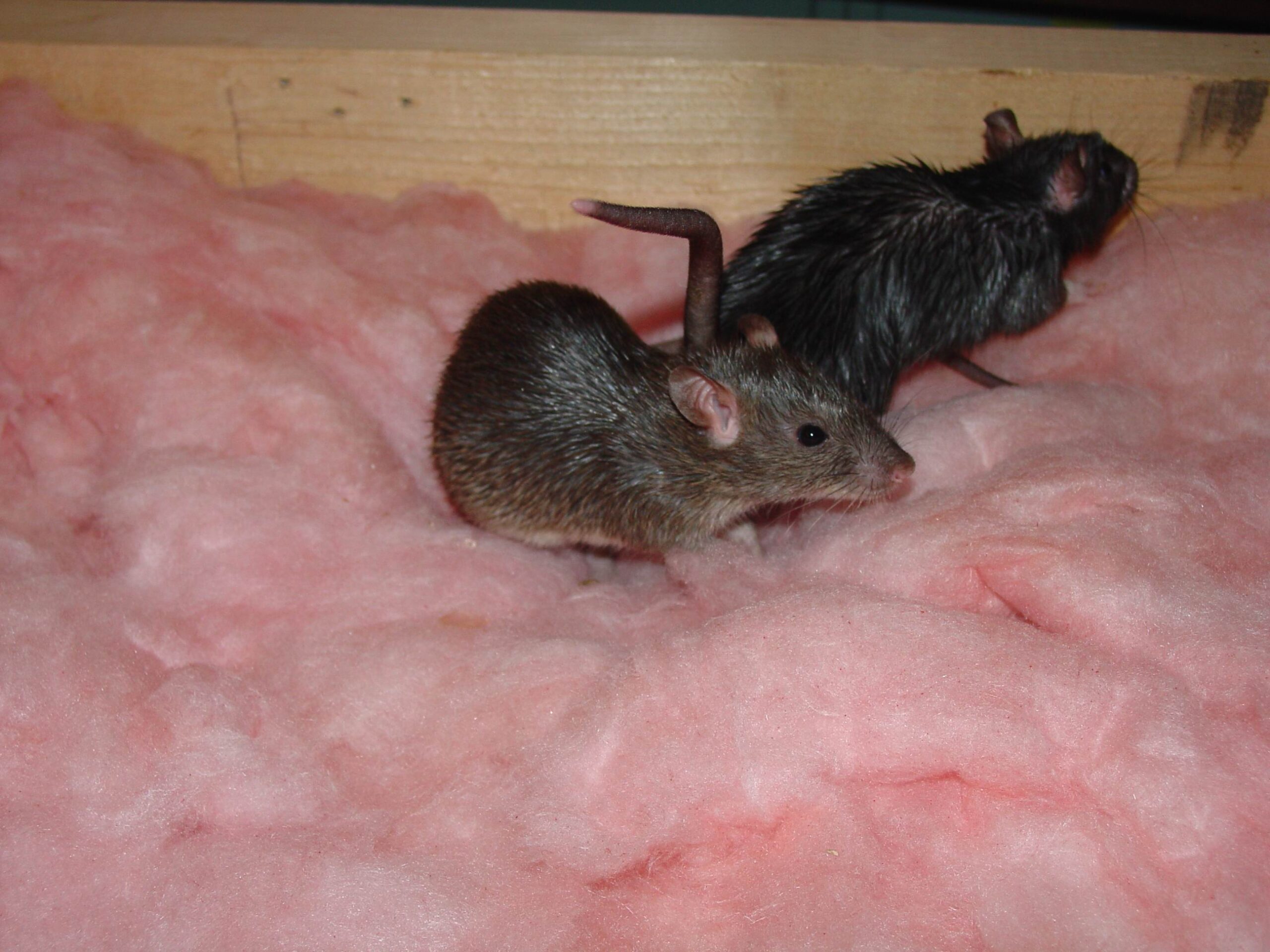Rats and Transmissible Diseases
Despite their reputation, rats are actually cleaner animals than other rodents, but that doesn't mean you should feel free to pet or touch one. Rats are still wild animals; unlike your pets, they do not receive vaccinations for different diseases and bacteria. Unfortunately, while you may have the sense to stay away from rats on your property, your pets likely don't have the same level of restraint. Cats and dogs are curious, and they will approach any wild animal to see if it is a friend, foe, or toy. The problem is your pets can get infected from rat scratches, bites, and other fluids. At least three illnesses should concern pet owners.1. Hantavirus
The hantavirus is an aggressive and highly contagious disease. Also called Pulmonary Syndrome, the virus is sometimes deadly. Both animals and people can contract the illness. It is most commonly spread through infected deer mice, but some rats can also carry the disease: rice and cotton rats. To keep your pets safe, wildlife control services should remove all infected rats and clean and treat the area. The virus can live in rat and mouse urine, contaminating the ground and nesting materials. Homeowners should never attempt to clean up after a rat infestation alone and without the proper training or gear.2. Leptospirosis
Leptospirosis is a bacteria. It can infect humans and several animal species, including domesticated animals. The bacteria are primarily found in temperate and tropical regions but can exist anywhere. Animals infected by leptospirosis may not show symptoms, but if they do, the symptoms include fatigue and nausea or illness. The bacteria is present in rat urine. Pets often expose themselves to it by sniffing areas where rats live, eat, play, or nest. The best way to avoid contracting the bacteria is to address rodent control issues quickly.3. Rat Bite Fever
Rat Bite Fever is another illness proliferated by the rodent population. Despite the name, rats can transmit the disease through urine and feces, as well as bites and scratches. Pets and people are often affected by the condition when they drink contaminated water. Leaving your pets' food and water bowls outside makes it easier for rats to contaminate them with urine and fecal matter. It is always recommended that you keep your pets' food and water inside. If you must keep it outside, ensure that you take it in every evening and wash the bowls before putting it back out in the morning.Rats and Other Dangers
While rats can spread disease to humans and their pets, the animals are also dangerous for other reasons. If rats get inside your home, they can present a significant fire risk. Rats, like all rodents, need to chew to file their teeth. They do not discriminate between objects and will often chew your home's wiring. If you suspect you have a rat problem, do not hesitate to call a humane wildlife control service.Skedaddle Humane Wildlife Control and Safe Removal
 If you are looking for a trusted name in the rat removal business, contact Skedaddle Humane Wildlife Control and schedule an in-person appointment. The company will send a qualified team to assess your situation and ensure your home is safe and transparent when the job is complete.
If you are looking for a trusted name in the rat removal business, contact Skedaddle Humane Wildlife Control and schedule an in-person appointment. The company will send a qualified team to assess your situation and ensure your home is safe and transparent when the job is complete. 




